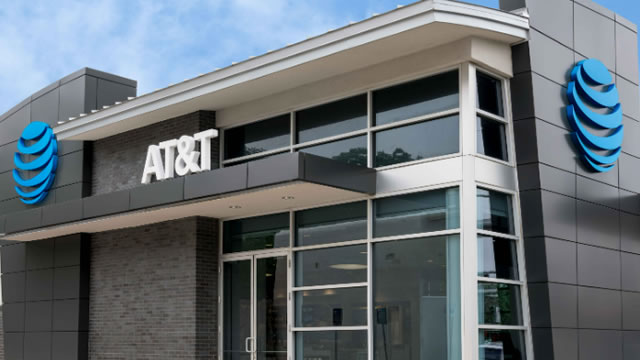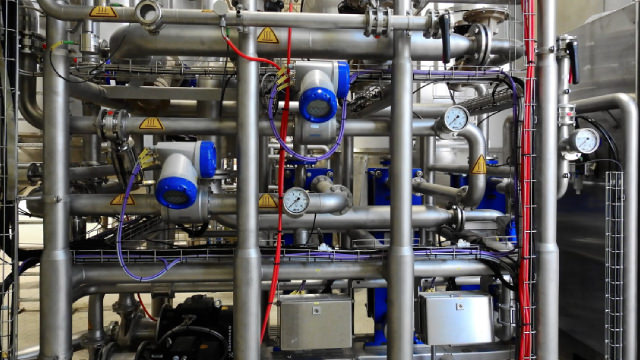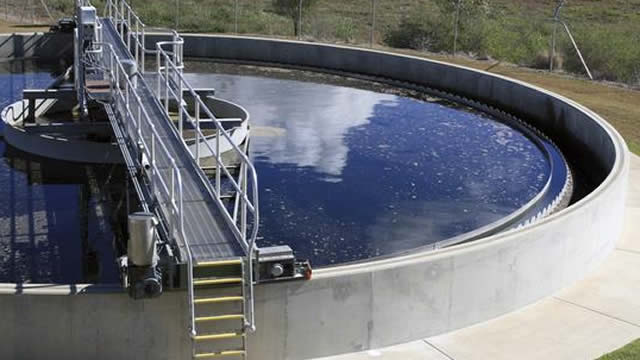
Aristocrat Group Corp. (ASCC)

Is Former Dividend Aristocrat AT&T a Buy After Q2 Earnings?
The communication services sector is having a strong year. Its 11.41% gain in 2025 makes it the third-best performer among the S&P 500's 11 sectors, easily outpacing the index's 7.28% gain.

3 Dividend Aristocrat Stocks That Wall Street Analysts Love the Most
Dividend Aristocrat stocks are those that have increased their dividend payouts for 25 consecutive years or more.

Prosperity Bancshares: Dividend Aristocrat In The Making
Prosperity Bancshares stands out for its conservative management, resilient loan portfolio, and operations in high-growth markets, supporting steady performance through economic cycles. The bank's low-cost, high-quality deposit base enables a strong net interest margin, despite a low-yielding securities portfolio with unrealized losses. Shares trade below historical valuation multiples, offering a potential 20% upside if they revert to average, plus a reliable and growing dividend yield.

This Deeply Discounted Buy-Now Dividend Aristocrat Yields 5%
Key Points in This Article: T.

Stanley Black & Decker: Excellent Time To Buy This Dividend Aristocrat
Stanley Black & Decker trades at a decade-low price, offering value and a 5.1% dividend yield for patient, income investors. Despite macro headwinds like high rates and tariffs, SWK shows stable results, improving margins, and ongoing strength in professional tools. Management's $2 billion cost savings plan and supply chain shifts enhance long-term resilience and position SWK for future growth.

3 Dividend Aristocrat Stocks With Ultra-Safe Yields Above 4%
Dividend Aristocrats are solid investments in the current environment. High Treasury yields are causing them to look less attractive, and they're trading at discounted levels.

June's Top Dividend Aristocrat Fat Pitches: Blue-Chip Bargains You Can't Miss
Despite bubble fears, 91% of market gains since 2009 are justified by fundamentals like earnings, dividends, and strong balance sheets. Stocks appear overvalued at face value, but strong long-term earnings growth potential could justify current prices. These five dividend aristocrats, currently trading at a 42% historical discount, offer exceptional return potential and a significant margin of safety.

Costco: Hold This Potential Future Dividend Aristocrat
Baby Boomers hold significant wealth and influence, impacting the economy as they age and creating investment opportunities in sectors like retail and healthcare. Costco is favored by Baby Boomers and millennials, offering value and nostalgia, making it a strong long-term investment despite current overvaluation. Costco's consistent dividend growth and share repurchases enhance shareholder returns, but the stock's high valuation suggests a HOLD rating for now.

3 Dividend Aristocrat Stocks To Buy in May and Hold Forever
Instead of selling, you can buy these dividend stocks in May and go away. These Dividend Aristocrat stocks have both upside potential and pay dividends.

Emerson Electric: Buy The Dip On This Dividend Aristocrat
Emerson Electric's price dip in recent months creates an attractive entry point. It trades below its historical average PE and has strong fundamentals and growth prospects. EMR's leadership in automation solutions, high margins, and strategic acquisitions position it well to benefit from rising global power demand and energy transition trends. Record gross and EBITDA margins, solid EPS growth, and a healthy balance sheet underscore EMR's high-quality status in industrial automation and energy solutions.

York Water: Tap Into This Dividend Aristocrat For Recession-Proof Income
Water utilities such as York are a great place to take shelter from current market volatility. York Water's 2024 results were fine, and 2025 should show a return to earnings growth. This Dividend Aristocrat is a good pick as investors prioritize lower volatility firms with steady cash flows and income streams.

Fuchs: On Its Way To Dividend Aristocrat And Still Undervalued
Fuchs SE's fiscal 2024 results disappointed investors, causing a temporary stock decline, but the stock quickly recovered and remains a "Buy" due to its strong fundamentals. Despite a slight revenue decline, Fuchs achieved 10.1% EPS growth and maintains a diversified customer base, reducing dependency on any single client. Management expects 5% sales growth and 6% EBIT growth for fiscal 2025, with long-term revenue growth opportunities in e-mobility, wind power, and data centers.







